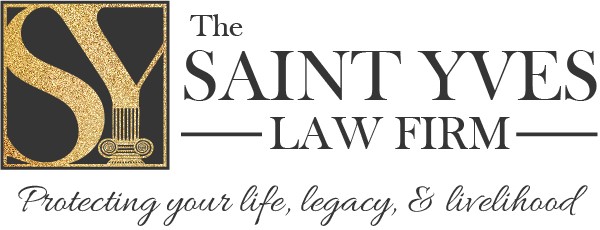Estate Planning in Maryland
We believe everyone should have this peace of mind, including family members so they will know what to do when major life events happens.
Planning for the future is a topic that is both unique and very personal — it can also be overwhelming if you aren’t sure where to start. Everyone has their own needs and goals — whether it’s crafting a simple will stating your wishes as to who receives your assets upon death, designating what happens if you can no longer make your own medical decisions, or even structuring your estate in a way to minimize tax consequences and leave as much of your hard-earned money as possible to be distributed after you’re gone.
Good estate planning lawyers can achieve their client’s goals and avoid problems no matter the size of the estate. They can also update plans that have been in place for a long time but are no longer fulfilling their intended purpose. No matter your needs or where you are in the estate planning process, the skilled Maryland estate planning attorneys at The Saint Yves Law Firm are here to provide personalized planning help so you can rest easy.

Choose Saint Yves Law Firm
Estate planning is an important process that every Maryland resident should consider. It ensures that your assets are protected and passed on to your loved ones as you intend, in a way that minimizes taxes and other liabilities. The Saint Yves Law Firm is a reputable and experienced Maryland law firm that specializes in estate planning. Our attorneys have the knowledge and expertise to guide you through the process and provide personalized help to meet your specific needs.
We can assist with a wide range of estate planning services, such as creating a will, trusts, power of attorney, and advanced medical directive. We can also advise on tax planning and asset protection, which is essential to minimize the impact of taxes on your estate. Furthermore, our estate planning lawyers are dedicated to providing exceptional customer service and are committed to ensuring that our clients understand all aspects of the estate planning process. We understand that this can be a difficult and emotional process, and we strive to make it as smooth and stress-free as possible for our clients.

Wills
Wills are legal documents expressing what you want to happen with your assets. They take effect upon your death, but it’s important to have them in place no matter the size of your estate or how old you are. A will enables you to specify who will be responsible for any minor children you have and who will carry out the instructions in your will on your behalf. You can also name a successor to the executor to control the identity of an executor’s replacement in case they are unwilling or unable to fulfill their duties.
Trusts
A good alternative to a will that can offer a tax-beneficial method of passing the assets of the estate to desired beneficiaries is a living trust. Living trusts come in two types: revocable and irrevocable. However, whichever type you pick, the assets placed in the trust will not go through the probate process, and your beneficiaries will have an extra level of privacy.
Revocable vs. Irrevocable Trusts:
Revocable trusts are legal constructs where the person transferring assets to the trust maintains both control and ownership over the assets. They can allow the assets to be managed by a trustee for your benefit, may pass to any beneficiaries you name after your death, and keep your estate from moving through probate. Irrevocable trusts, on the other hand, move the assets in the trust out of the individual’s ownership and control — they are no longer a part of your estate for tax calculation purposes and out of reach of creditors or legal judgments. Depending on your situation, there may be additional benefits to creating either a revocable or irrevocable trust.
Special Trusts
In addition to general revocable and irrevocable trusts, with our Maryland law firm it’s possible to create other trusts designed for specific purposes. These may include:
Life Insurance Trusts – irrevocable trusts where the life insurance policy on the individual’s life is owned by the trust, keeping the value of the policy payout out of the estate and away from estate taxes. This is a popular estate planning strategy for those looking to minimize their tax liability and ensure that their beneficiaries are taken care of after their passing.
Charitable Trusts – irrevocable trusts that are created for a charitable purpose; any money left in the trust at the time of death passes to support charitable activities. Both charitable lead and charitable remainder trusts may help individuals avoid certain costly taxes. This can be an excellent way for people to give back to their communities and support causes that are important to them while also receiving tax benefits.

Power of Attorney
In the unlikely event that an individual is incapacitated and can’t make their own decisions, it is often helpful to create a power of attorney to handle such a situation. A power of attorney is a legal tool that permits an individual designated in the document — known as an agent — the power to make decisions regarding subjects you have specified on your behalf. It prevents the court from needing to choose a guardian without your approval to make these decisions for you.
At the Saint Yves Law Firm, our experienced estate planning attorneys in Maryland can assist you in creating a power of attorney. We can help you understand the different types of power of attorney and the scope of authority that can be granted to your agent. We can also help you to ensure that the document complies with Maryland law and is consistent with your overall estate plan, including your Maryland last will and testament. By working with a Maryland law firm like ours, you can have peace of mind knowing that your wishes will be carried out even in the event of incapacity.

Advanced Medical Directive
Just as a power of attorney allows you to pick someone to make decisions if you’re unable to, an advanced medical directive allows you to decide ahead of time your preferences and desires when it comes to your medical care if you become unable to make your own medical decisions. These directives can include a broad number of treatments and medical interventions you do or do not wish performed on you, such as:
Surgery
Various medications
Some procedures you may want to make decisions about in advance are also included on a Maryland Medical Orders for Life-Sustaining Treatment form you can complete and use in conjunction with your directive. The form covers a broad range of treatments including:
CPR
Feeding tubes
Ventilators
Intubation
Transfusions
Hospital transfers
Dialysis
A Maryland estate planning attorney can help you decide what you may want to include in your advance medical directive, how best to carry out your wishes, and complete a document meeting the state’s requirements to be effective.

Tax Planning
At Saint Yves, our Maryland law firm, we understand that an important part of estate planning is evaluating an estate’s potential tax liability and working to avoid that as much as possible. Our experienced estate planning attorneys can help you create a last will and testament that not only meets your specific needs and goals but also helps to reduce or eliminate "Death Taxes."
One tool our attorneys may use to maximize the estate’s value and minimize tax consequences is advising a transfer of assets to beneficiaries—whether it takes the form of a gift, a transfer to a trust, or a sale of assets. We are able to analyze an estate and find a way to complete beneficial transfers while making gift, inheritance, and income tax implications as minimal as possible.
In addition to this, other options to help reduce or eliminate “Death Taxes” may include:
Charitable giving
This is a way to make donations to charitable organizations or causes that you support. The donations can be made in the form of cash, property, or securities. Charitable giving can be a great way to give back to the community and also help with reducing tax liabilities. When you make a charitable donation, you may be able to claim a tax deduction for the value of the donation.
Valuation discounting
This is a strategy used to reduce the value of assets for tax purposes. This can be done by transferring assets to family members or trusts at a discounted value. The strategy is based on the idea that the assets are worth less because they are not as easily marketable or liquid as publicly traded securities. The discount can be used to lower the value of the assets for estate and gift tax purposes, which can help to reduce the overall tax liability.
Bypass trusts
Also known as credit shelter trusts, bypass trusts are designed to reduce the estate tax liability for married couples. This type of trust is created to hold assets that pass to the surviving spouse, but are not included in their estate for tax purposes. When the surviving spouse dies, the assets in the trust are passed on to the beneficiaries named in the trust, bypassing estate taxes. This can help to preserve more of the estate for the beneficiaries.
Other trusts for residences, assets, and life insurance
There are other types of trusts that can be used to reduce tax liabilities and ensure that assets are protected for future generations. These can include, but are not limited to: Qualified Personal Residence Trusts (QPRTs) are used to remove a personal residence from the grantor's estate while allowing the grantor to continue living in the residence for a period of time. Asset Protection Trusts (APT) which is designed to protect assets from creditors, lawsuits, and other claims. Life Insurance Trusts (ILIT) are irrevocable trusts where the life insurance policy on the individual’s life is owned by the trust, keeping the value of the policy payout out of the estate and away from estate taxes.
At The Saint Yves Law Firm, our Maryland law firm, we have the knowledge and experience to help you navigate the complex laws and regulations surrounding estate planning and taxes. We can help you create a plan that meets your needs and protects your assets while minimizing tax liabilities.
Contact a Maryland Estate Administration Attorney Today
The topic of estate planning may cause unnecessary stress for people confronting issues related to dividing assets, making decisions related to potential healthcare needs, and thinking about their own mortality. However, these topics can be handled quickly, painlessly, and professionally with help from an experienced Maryland estate planning attorney. We have worked with clients just like you for years to help them develop and maintain comprehensive estate plans that meet their needs, carry out their wishes, and give them peace of mind. Whether you want to create, modify, or simply administer an estate plan, schedule a free Family Legacy Planning Meeting with our office and let's see how we can help produce the results you want.


THE SAINT YVES LAW FIRM
Contact Us Today for a Family Legacy Planning Meeting
To schedule a Family Legacy Planning Meeting with Attorney Marie-Yves Jean Baptiste, please click on the button below.
Contact Us Today Call: (443) 707-8692 (Baltimore County) Call: (410) 510-7111 (Harford County)
DISCLAIMER: The Saint Yves Law Firm assists individuals with estate planning, estate administration, estate litigation, family law, tax preparation, and tax controversy issues in Maryland. Under no circumstances does this website, directly or indirectly, including, without limitation, correspondence by any means to or from The Saint Yves Law Firm, establish or intend to establish an Attorney-Client relationship between you and The Saint Yves Law Firm. The act of sending electronic mail to this law firm or making an Online Contact Form submission alone does not create an Attorney-Client relationship.
